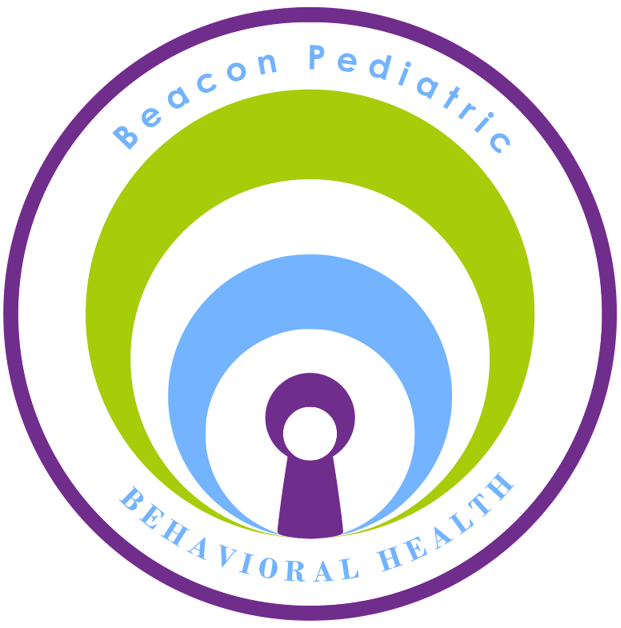
ASSESSMENT
Are you concerned that your child is showing symptoms of a possible developmental delay, Autism, learning disorder, or mental health diagnosis, such as ADHD or a behavioral disorder? Has their pediatrician or school recommended an assessment to investigate his or her strengths and weaknesses and to help determine what type of treatment or intervention may be best? Our team of skilled evaluators can help!
WHAT TYPE OF TESTING CAN BE DONE?
A variety of assessment services are conducted at Beacon Pediatric Behavioral Health, including:
Diagnostic psychological evaluations
Autism Spectrum Disorder
Attention Deficit Hyperactivity Disorder
Anxiety Disorders
Mood or Depressive Disorders
Disruptive Behavior Disorders (Oppositional Defiant Disorder, Conduct Disorder, etc.)
Psycho-educational assessments:
Identification of Specific Learning Disorders (Dyslexia/Impairment in Reading, Dysgraphia/Impairment in Written Expression, Dyscalculia/Impairment in Mathematics)
Identification of Developmental Delays
Determination of unique student profile of academic, cognitive, and neuropsychological strengths and weaknesses
Gifted Testing
Depending on presenting concerns, a psychological or psycho-educational evaluation may be recommended by your therapist or requested by the caregiver. An assessment is typically necessary for diagnostic clarification (e.g., to rule out diagnoses such as Autism, Asperger’s Syndrome, Attention Deficit Hyperactivity Disorder , Learning Disorders, etc.) and can be helpful for treatment planning. At times, an evaluation may be warranted when a child is struggling at school. Assessment results can provide a detailed explanation of the child’s cognitive strengths and weaknesses and learning style, which is often useful in determining appropriate academic interventions and accommodations. Additionally, a Gifted Evaluation may be requested by parents to determine if a child displays the intellectual strengths typical of a ‘Gifted’ child, as required for placement within the Gifted and Talented program of the public school system. All assessment tools used at BPBH are valid and reliable measures regularly utilized in the field of clinical and school psychology and are recognized and accepted by the public school districts in Florida.
Assessment Steps
Although every case may vary, most testing cases will follow the steps outlined here.
-
o First appointment; provider gathers information from client and parent/guardian through an interview about background history, current concerns, symptom presentation, etc.
o At the conclusion of this appointment, the evaluator will determine which measures may be most appropriate for your evaluation needs and the testing appointment(s) will be scheduled with the client (except on a rare occasion when the testing appointment has already been scheduled to occur immediately after the intake)
-
o Some insurance plans require pre-authorization, which cannot be submitted until the evaluator gathers the necessary information during the intake interview.
o If your plan requires pre-authorization, the evaluator will submit the necessary information to insurance within a week of your initial intake. Testing cannot be scheduled until insurance approves it and provides an authorization number; the amount of time for response by insurance may vary, though typically takes between 1 and 4 weeks.
-
o Evaluator administers psychological test directly to client, makes observations, gathers information from parents/guardians and teachers (where relevant), reviews records, etc.
o Assessment may include: IQ test, developmental assessment, neuro-psych batteries, ADOS-2 (Autism test), self-report measures, parent/teacher questionnaires, symptoms specific rating scales, etc.
o Client/child (and parent/teacher where relevant) is present and/or participatory during this portion of the assessment.
o Testing is typically scheduled in 1.5-2 hour blocks and may take between 1 to 3 days to complete; on occasion, testing may be completed in one extensive block of time if client is able to tolerate longer sessions without becoming fatigued and if evaluator’s schedule permits.
o Occasionally, testing may be able to be conducted on the same day of the initial intake interview (depending on insurance and authorization requirements).
-
o Evaluator scores measures, interprets test results and analyzes clinical data, performs clinical decision making, makes diagnostic conclusions, and/or integrates and summarizes information.
o Client/child/parent/teacher are NOT present nor participatory during this portion of the assessment.
o This portion of the assessment is typically performed on a different date(s) after the date of direct or ‘face-to-face’ testing (and as such, will show up as an additional date on your insurance EOB and/or bill (beyond the date(s) your child was in the office).
-
o Evaluator meets with parents/guardians in person or virtually and explains client’s obtained scores, discusses diagnostic conclusions, and reviews clinical recommendations.
o Consultation will typically be scheduled approximately 2-3 weeks after the final part of the assessment is completed and/or after all questionnaires/measures have been returned to the evaluator.
o Evaluator may provide parents/guardians a copy of the official report during this appointment or may provide a draft summary of scores during this appointment and later send parents/guardians the final official report.
o No specific guarantees can be made about the results of the evaluation (including diagnoses).
INSURANCE AND ASSESSMENT
Insurance companies vary significantly in their coverage of psychological testing. Specific rules often apply, with limits on what is allowed, as all testing coverage is based on “medical necessity” and only certain diagnosis codes and types of assessments are allowed. Also, some plans do not allow for any psychological testing AT ALL, even if providers are in network. Many plans have high deductibles that must be met before services can be covered; testing costs can range between approximately $500 to $2000, and clients may be responsible for the full cost if a deductible applies. Therefore, it is essential that you contact your insurance company, as you are ultimately responsible for knowing the details of your coverage and will be responsible for payment of any services your plan does not reimburse.
If you have a copay, you will be responsible for the copay for every date of service (intake, direct testing, indirect assessment tasks, feedback consultation, etc.). If an insurance benefit check reveals that a deductible remains, Beacon reserves the right to estimate fees and charge client prior to testing (client’s credit card will be refunded or charged the difference once insurance processes the claims, in the event the estimate is different than the EOB reveals). For testing procedures that are not covered by insurance, clients must pay fees prior to testing and/or release of official report
To ensure that you have accurate information for the psychological testing that you wish to pursue, please review the FAQ and contact your insurance company as soon as possible to find out the necessary details.
QUESTIONS TO ASK INSURANCE BEFORE SCHEDULING TESTING
Does my plan cover behavioral health services, including testing? CPT codes include (but not limited to):
Intake 90791, Testing 96130, 96131, 96136, 96137, Consultation/Therapy 90837, 90834, 90832, 90847, 90846
Does my plan cover the diagnosis(es) that testing is needed for? Common ICD-10 codes include (but not limited to):
F84.0 (Autism), F91.9 (Disruptive Disorder), F91.3 (ODD), F90.2 (ADHD), F41.9 (Anxiety), F43.20 (Adjustment Disorder), F81.0, F81.2, F81.81 (Learning Disorders)
NOTE: If the evaluation is investigating several different diagnoses, including both covered and non-covered diagnoses, it is likely that part of the testing may be covered by insurance, while other parts (typically academic concerns) are not.
Does my plan require pre-authorization for psychological testing (the CPT codes above)? If yes, what must be done, by whom, and if a form is required, where can this be found?
What patient responsibility is associated with psychological testing services? (copay, co-insurance, deductible [how much remains?])
Is Beacon covered under my insurance for psychological testing?
Provider: Beacon Pediatric Behavioral Health
Group NPI: 1770838872
Directors: Adrienne L. DeSantis King, Ph.D., licensed psychologist (NPI: 1467605493), Parastoo Nabizadeh, Psy.D., licensed psychologist (NPI: 1114226974),
Primary Address: 6816 Southpoint Pkwy, Ste 202, Jacksonville, FL 32216



